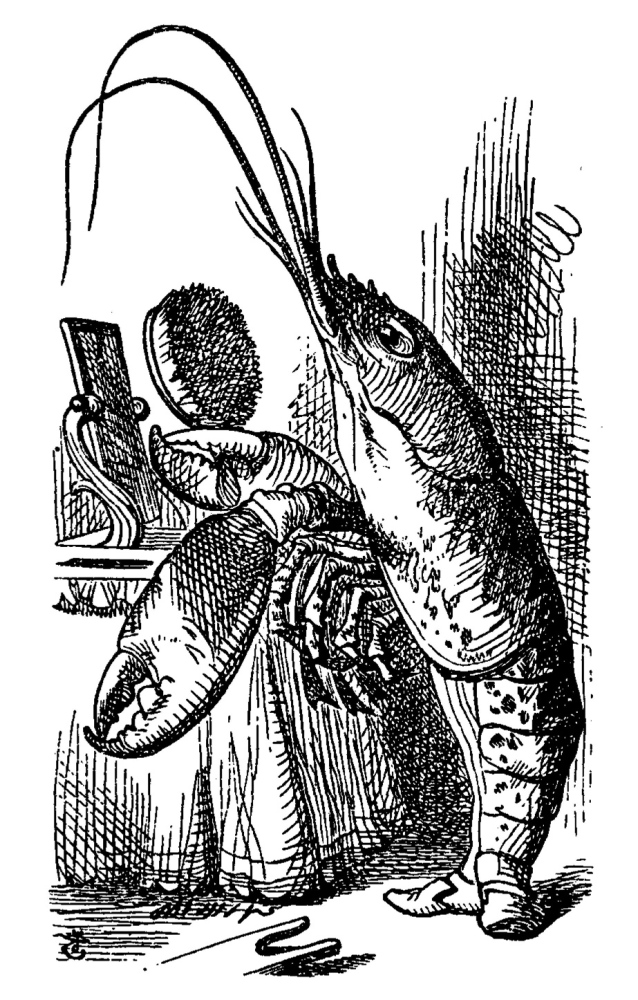When the Portland Symphony Orchestra released its plans for the 2015-2016 concert season last week, one item stood out: a symphony that commemorated one of the strangest love affairs in the history of music, between American composer David Del Tredici (b. 1937) and “Alice in Wonderland.”
Since 1968, a great deal of Del Tredici’s work has been devoted to the “Wonderland” books and their author, Lewis Carroll, beginning with settings of “Turtle Soup” and “Jabberwocky,” juxtaposed with a Litany and a Bach Chorale.
“Jabberwocky” might well appeal to a contemporary composer, with its musical use of nonsense and portmanteau words, but there seems to be a much deeper connection between Del Tredici and Carroll. The key lies in Martin Gardner’s “The Annotated Alice.”
Gardner provides detailed historical background, sketches of the people involved and the originals of the Victorian poems that Carroll parodied. The combination of the original verses with their distorted reflections triggered something in the composer’s rebellious nature.
Del Tredici, born in 1937, has always been known as a maverick. In a musical world dominated by 12-tone serialism, especially at Princeton, where Del Tredici studied, he eventually returned to the music of Bach, Beethoven and the Beatles, prompting horrified reactions from the critics, followed by acceptance and eventually enthusiasm.
The first large-scale work to emerge from his Carroll inspiration was “An Alice Symphony,” (1969) which the Portland Symphony Orchestra will play on Nov. 10. One of its most famous sections is “The Lobster Quadrille.” In the composer’s original program notes about its construction, Del Tredici explains how he hoped to capture the scene in “both its humor and its grotesquerie.” To that end, he added a mandolin, a banjo, an accordion and two saxophones.
“These are very common instruments indeed; however, in the more rarefied symphonic realm their presence is somewhat bizarre, and creates a juxtaposition suggesting to me a kind of musical equivalent to the special atmosphere of the dramatic scene,” he wrote.
Finding what the composer calls the “folk instrument group” of the quadrille may have the PSO scrambling, but they already have a good ukulele player in hornist Nina Allen Miller, who founded the ukulele group FLUKE.
The quadrille also employs the human voice, accelerando, to portray the lines: “‘Will you walk a little faster?’ said a whiting to a snail. ‘There’s a porpoise close behind us, and he’s treading on my tail.'”
Del Tredici accomplished something enormously challenging in its composition. He wrote two dances that stand on their own and that also make musical sense when superimposed upon one another. In ordinary contrapuntal writing, two or more musical lines are superimposed harmoniously. To superimpose two separate compositions is orders of magnitude more difficult.
The result, according to Harry Neville of the Los Angeles Times, requires no knowledge of counterpoint to appreciate: “The music is suffused with infectious good spirits – a rare quality these days – and altogether struck this listener as one of the most successful attempts yet to combine ‘serious’ and ‘popular’ musical elements.”
“An Alice Symphony,” written when Del Tredici was initially exploring the possibilities of combining tonality with dissonance, is the most modern sounding of the four symphonic works.
The “Acrostic Poem” for soprano in “The Final Alice” (the last of the four full-length “Alice” works), is written in triads (three-note chords), like a Beatles song. The aria does descend into chaos at the end but is pulled back by the soprano counting slowly, in Spanish. “An Alice Symphony” is of particular importance since it marks Del Tredici’s initial break with academic tradition in music. A special aspect of its performance in November will be a staged accompaniment by dancers from the Portland Ballet Company, with choreography by Roberto Forleo.
Part of the Portland Symphony’s program of collaboration with local arts groups, it promises to be spectacular.
Christopher Hyde is a writer and musician who lives in Pownal. He can be reached at:
classbeat@netscape.net
Send questions/comments to the editors.


